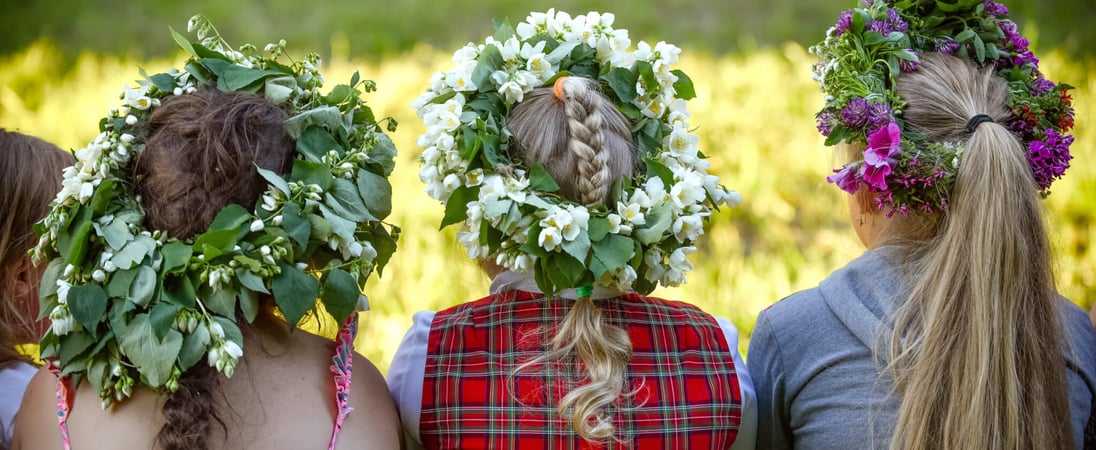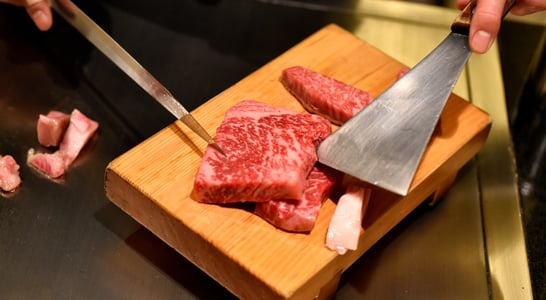
Summer Solstice
It's the day with the most sunshine, the longest day of the year. Celebrate the official start of summer with outdoor fun!
Every year, the Earth celebrates the summer solstice on the longest day and shortest night of the year, which officially kicks off the summer season!
And this day actually occurs twice a year depending on its location: in the Northern Hemisphere, the solstice is usually celebrated on June 20th or 21st and, for the Southern Hemisphere, it usually falls on December 21st or 22nd.
Throughout its long history, aside from marking the changing of seasons, the summer solstice has also meant different things in different cultures, but all of them have mostly agreed that it signified a period of renewal, growth, and plentiness since it was tied to agriculture and good fortune in general.
How to Celebrate the Summer Solstice
There are many things to do to prepare for the arrival of the summer season. People can embrace the colors of the sun and dress in sun-themed clothing full of yellow, orange and gold. The same concept applies to food, so fruits and vegetables shaped or resembling the sun take the spotlight, such as oranges, lemons, mangoes, peaches, corn and tomatoes.
Host an Outdoor Feast
Gather friends and family for a picnic or barbecue in a local park or your backyard. Sharing a meal outdoors allows everyone to appreciate the extended daylight and warmth.
Incorporate seasonal produce into your dishes to highlight summer’s bounty. This communal dining fosters connection and gratitude for nature’s generosity.
Engage in Sun Salutations
Begin the day with a series of yoga sun salutations to honor the sun’s vitality. Practicing these poses outdoors enhances the experience, grounding you in the natural world. This ritual not only energizes the body but also cultivates mindfulness and a sense of harmony with the environment.
Create a Floral Crown
Crafting a flower crown using fresh blooms and greenery connects you to the earth’s beauty. Wear your creation throughout the day as a symbol of life’s flourishing. This activity invites creativity and provides a tangible reminder of nature’s vibrancy during the summer months.
Light a Bonfire
As evening approaches, gather around a bonfire with loved ones. The warmth and light of the fire mirror the sun’s energy, extending the day’s celebration into the night. Sharing stories, singing, or simply enjoying the fire’s glow fosters a sense of community and continuity with ancient traditions.
Explore the Great Outdoors
Take advantage of the long daylight hours by hiking, swimming, or simply walking in nature. Immersing yourself in the natural world during this time enhances your connection to the season’s rhythms. Observing the flourishing flora and fauna can inspire a deeper appreciation for the environment and its cycles.
And since the weather is nice to enjoy outdoor activities, everyone can attend music festivals and bonfires, full of dancing and singing, as well as spiritual gatherings and cultural events in honor of the solstice. Not to mention watching the sunrise, and even meditating!
Why is the Summer Solstice the Longest Day of the Year?
The summer solstice is a natural astronomical event that happens when the Earth’s axial tilt is at its maximum inclination toward the sun (at around 23.44 degrees). Because of this position, the sun takes longer to travel through the sky and, for the people on Earth, it appears to be at its highest point in the sky.
Since the sun spends more time traveling across the heavens, this means that the day lasts longer, and in turn the night is shorter. This is because the tilt of the Earth’s axis causes different parts of the planet to receive varying amounts of sunlight as it orbits around the sun. The exact timing of the solstices can vary slightly from year to year due to the Earth’s elliptical orbit around the sun, but they generally occur around the same dates each year.
Likewise, as one hemisphere enters its summer months, the other is beginning the winter season, since the opposite pole is furthest away from the sun, therefore receiving less sunlight.
History of the Summer Solstice
Back to a time when there were no clocks or calendars, people from many cultures relied on the movements of the sun and the stars to keep track of time and calculate the beginning and the ending of the seasons. It was important to keep track of the skies and other astronomical events because they were useful to plan their daily lives around their crop cycles, such as harvest and planting seasons, as well as other economic and religious activities.
Some ancient cultures like the Egyptians, Greeks, and Romans considered the summer solstice as a time of fertility, abundance, and the renewal of life and celebrated it as such. For many of these cultures, the summer solstice was a day to pay tribute to the sun god or goddess in their religion’s pantheon.
Such was the case with the Greeks, who also considered the solstice as the start of their calendar year, would honor Cronus, the patron of agriculture, through the festival of Kronia, while the Romans marked the occasion with a festival dedicated to Vesta, the goddess of the hearth and home.
The ancient Egyptians, on the other hand, celebrated the solstice as the beginning of the Nile flood season, which was critical for agriculture in the region, and paid tribute to their sun god Ra.
The summer solstice is an important spiritual and cultural event in many indigenous cultures as well. Native American tribes in North America hold traditional ceremonies and dances during the summer solstice celebrations. Further to the south, the Inca people honored the sun god Inti with a 15-day festival called Inti Raymi, full of dances, ceremonies and sacrifices to the god.
In recent times, the summer solstice celebration became more commonly associated with magic, evil spirits and Paganism, while still keeping the tradition of worshiping the sun and doing bonfires and rituals to ensure good fortune.
Also on ...
View all holidaysWorld Music Day
From Beethoven to Taylor Swift, there’s music for everyone. Revisit your old favorites or discover new artists from different cultures on World Music Day.
Wagyu Day
With its tender texture, this premium beef creates a melt-in-your-mouth sensation, leaving taste buds in a state of pure delight.
National Smoothie Day
A delicious and refreshing drink that's perfect for any time of day, packed with nutrients and flavor — it's the ultimate healthy indulgence!
International Yoga Day
Yoga benefits both your mental and physical health, and can be done just about anywhere. Sign up for a class, or perhaps find a Youtube tutorial to get started.




